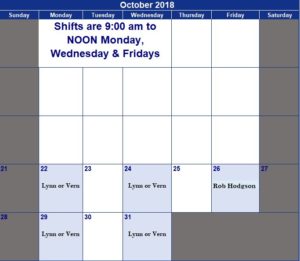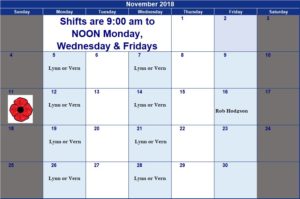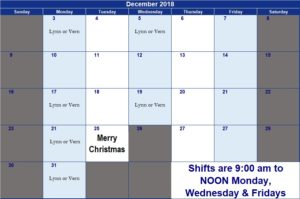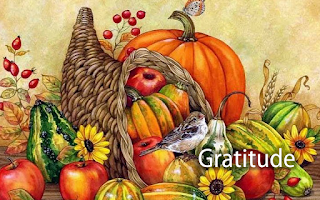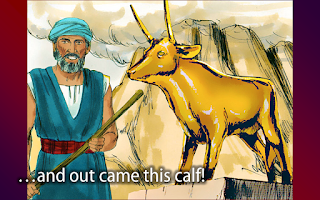Hespeler, 30 September, 2018 © Scott McAndless
Exodus 32:1-8, 15-24, Romans 1:18-23, Psalm 135:1-5, 14-21
he Bible tells us that, even while Moses was up on the top of Mount Sinai and receiving the Ten Commandments and the Law from the very hand of God, the people of Israel were down below breaking one of them – breaking it hard. That commandment was the second one, the one that said, “You shall not make for yourself an idol, whether in the form of anything that is in heaven above, or that is on the earth beneath, or that is in the water under the earth.”
Even as God was dictating (or inspiring or however it was actually transmitted) that law, Aaron was apparently hard at work melting down gold and molding it into the form of a calf, a beast that is found on the earth beneath. God, we are told, was not pleased. In fact, God was so angry that he was willing to wipe out the entire nation right there and then and Moses had to talk him out of it.
But let me play the devil’s advocate for just a moment here and just ask the question why. What was the big deal with one golden calf statue? I’m not talking about the technical defense that the Israelites might give – how could they be punished for breaking a law that they had not yet received? That may be a valid question, but I am asking a much more fundamental question: what is the problem with idolatry anyways?
The impulse to create idols is probably as old as human civilization itself. Some of the oldest human artifacts found have been statues of various gods and goddesses. So the desire to make them seems to be almost knitted into the very fabric of our humanity. But why? What do we think that we are going to gain from creating idols? They are costly and labour-intensive so why would anyone invest that much into something if they didn’t think they were going to get something out of it? What do people think that they are going to get from their idols?
Perhaps we can answer that question by looking a little closer at what was happening in the camp at the foot of Mount Sinai when that fateful decision was made. The people, clearly, are afraid. They have just escaped from slavery in Egypt having been led through a series of harrowing and amazing experiences by this man Moses. But now Moses has disappeared up the mountain. He’s been gone for far too long and they feel exposed and frightened. So they turn to Aaron and ask him to make them feel safe.
And so this is what Aaron offers them. He takes their gold, he melts it down and he creates a golden calf. This makes them feel safe. But why does it make them feel safe? Well, I would suggest you that the issue that is at stake here is the visibility of a god. The issue at stake is not a question of which God is being worshipped. You probably noticed that when the people of Israel saw the golden calf they responded by saying, “These are your gods, O Israel, who brought you up out of the land of Egypt!” suggesting that they associated this golden calf with certain unknown gods, perhaps even the gods that they had seen in Egypt. But Aaron’s response to the golden calf is a little bit different. Aaron builds an altar and he says, “Tomorrow shall be a festival to the Lord.” this suggests that Aaron was thinking of that calf as being somehow associated with the worship of Yahweh, the God of Israel. And, indeed, that is the history of the golden calf. We know that certain Israelite people, particularly in the northern Kingdom of Samaria, did associate the worship of the God of Israel with a golden calf.
So, the issue that is at stake in the golden calf incident is not a question of which God is being worshipped. There seems to be some confusion about that. So I would suggest that that is not what God is reacting to. The issue is that God has a problem with is how he is being worshipped and that God has an issue with the use of idols in his worship. But why?
That takes us back to the question of why human beings have always made idols. I would suggest to you, the reason why they did it was they were seeking influence and control over their gods.
Take the ancient Greeks, for example. They believed in a god called Poseidon. Why did they believe in Poseidon? Because they were surrounded on all sides by the sea and they knew how unpredictable and how dangerous the sea could be. The sea was very frightening for ancient people. They didn’t understand the tides or the terrifying tsunamis that could sometimes come in with such destructive power. And when people are frightened, what do they do? They try to assert control.
And that’s what the Greeks did. They created idols in the form of Poseidon, the god of the sea. It was a way of capturing Poseidon, anchoring him in one place, and when he was in that one place they could do things to influence his actions. They could perform sacrifices and rituals that would influence the otherwise unpredictable acts of the sea. And that, I think, is the origin of that human impulse to create idols. It is human beings seeking to control the otherwise uncontrollable and to exercise a degree of influence over that which is completely outside of their control and so terrifying.
It is a normal reaction and, by the way, one that I think we often have without thinking. I love the way that Aaron describes the making of the golden calf when he is confronted by Moses after the fact. Moses asks him, “What did this people do to you that you have brought so great a sin upon them?” And the best answer that Aaron can come up with is to say, “So I said to them, ‘Whoever has gold, take it off’; so they gave it to me, and I threw it into the fire, and out came this calf!” “I threw the gold in the fire and this calf just came out,” he says, almost as if he didn’t have anything to do with it. And I realize the Aaron is just trying to get out of accepting the blame here, but I think that there is some truth to what he says. There is a sense in which we do create idols in moments when we are frightened almost without realizing what we are doing. We throw the gold in the fire of our frightening experience and an idol pops out.
But, with this commandment, God is declaring that this will not be an appropriate way to relate to Yahweh, the Creator God, the God of Abraham, Isaac and Jacob. God, in other words, is not going to be tied down in one place. God is not going to be worshipped in such a way as to limit his own freedom of action. That is why God refuses to be made into an idol and will not countenance the worship of other gods in the forms of idols.
With all of that in mind, I think we can now turn to the question of how we can apply this particular commandment to the Christian lives that we live today. What does it mean to not have idols today? We are not tempted, as were the Ancient Greeks, to create a statue of Poseidon and think that we can use that statue to control the tides or the actions of the ocean. But that is not because we are not seeking control. That is simply because we no longer believe that you are able to control such things using statues. We understand what causes the tides and the currents in ways that the ancient people simply could not. I would suggest to you that whatever it is that we do use to try to control the uncontrollable forces of our world, these are our idols even if they are not necessarily in the forms of people or birds or beasts.
For example, we seem to be living in these days in a world filled with events that seem out of control. There are many different elements that make people feel this way right now: refugee migration in unmanageable numbers, an opioid epidemic, a climate crisis and some related disasters, just to name a few. In such an environment, it is only natural that people would react out of fear and grasp for anything that might even feel a little bit safe. In other words, we seem to live in a time that is rife for idol making.
But, again, chiseling out a few statues isn’t going to work for people today, so what do we do? I think that one trend that we see is people grasping for political leaders who tap into that feeling. Globally speaking, we seem to be in an era when so-called populist leaders are able to rise like never before.
I would argue that the reason this is so is because these are specifically the kinds of leaders who can project that aura that makes people feel safe even if the policies they are putting forward may not work and could possibly even make things worse. I would suggest to you, without naming any names, that we are using some of our populist political leaders these days as idols. And, yes, they are false gods and they will doubtlessly let us down sooner or later but in the mean time, a great deal of damage may be done. But it is like we can’t help it. We throw the gold in the fire of a scary global situation and out pops an idol.
And I honestly don’t think that Christians should feel too complacent about this either. These are stressful times for the Christian church – times when we seem to feel a great deal of insecurity about the future for all kinds of reasons – and I think that we, too, have been tempted to create idols in order to make ourselves feel safer.
Remember that, in the commandment, God is warning his own people about the danger of making idols of Godself as much as he is warning them against making images of other gods. So, I wonder, how might we still do that as believers today? What sorts of things do we construct that we think will be able to limit or control the action of God in our favour? Once again, as modern people were not going to resort to making statues and thinking that that’s going to control God, so what do we use instead?
Well, let me suggest one thing that I do see Christians doing. It’s the way that we sometimes use this book, the Bible. Yes, it is true that we see this book as inspired by God and believe that it gives us a unique insight into the character and will of God especially as it has been demonstrated to us in the person of Jesus Christ. That is all true.
The problem, for me, comes when people take that basic truth and push it further to say that, because they know the Bible, they now know exactly what God can and cannot do, how God can behave, on whom God may have mercy and on whom God will not have mercy. If you fall into a mode of thinking that, say, because I know this verse of scripture or I know that verse of scripture I therefore know an absolute and unchanging for all-time truth about God, you have fallen into idolatry. You have taken a good thing, a great gift of God in the scriptures, and turned it into a mere idol. I believe that that is exactly the kind of thing that God is warning us against with this commandment.
Yes we get scared. The world is a scary place, maybe especially these days, and in response we often do see golden calves just coming out of the fires of our fears. But God knows you are better than that. God knows that, if you will trust him, you can deal with the uncertainty, the change and the unresolved future. God believes in you enough to give you a command: don’t fall back on idols. Don’t just give divine powers to the latest lump of gold that comes out of the fires of your affliction. It might feel good in the moment. You might feel extremely relieved to have finally found a god of your own creation to tell you that it will take care of everything and keep you safe, but over time you will see that the only God who can save you is the living God, the God who will never be limited to one time or place by some human made construct, the God who doesn’t just brush you off with easy answers, but who is in it for the long haul.
Thanks be for that God.




